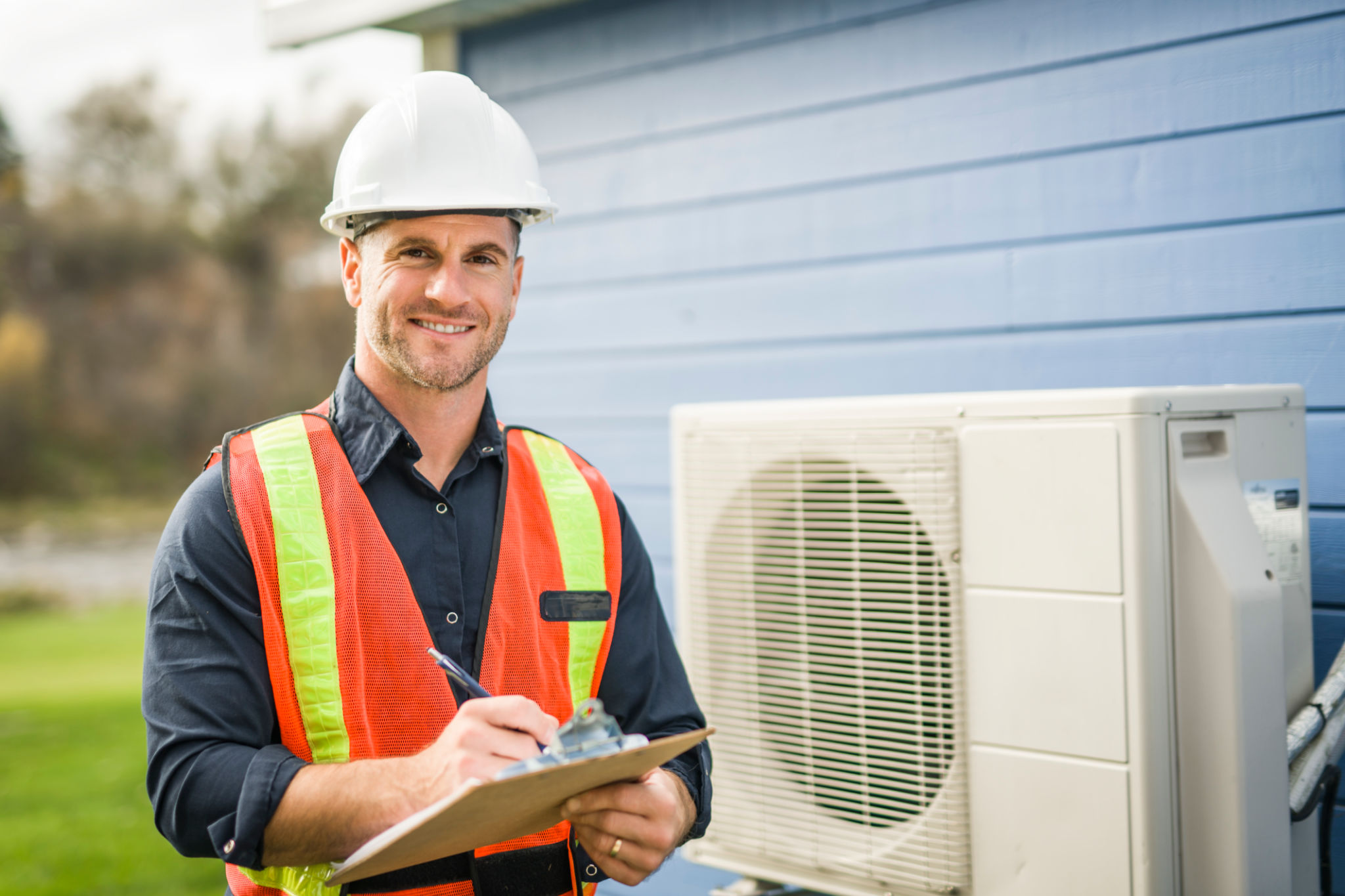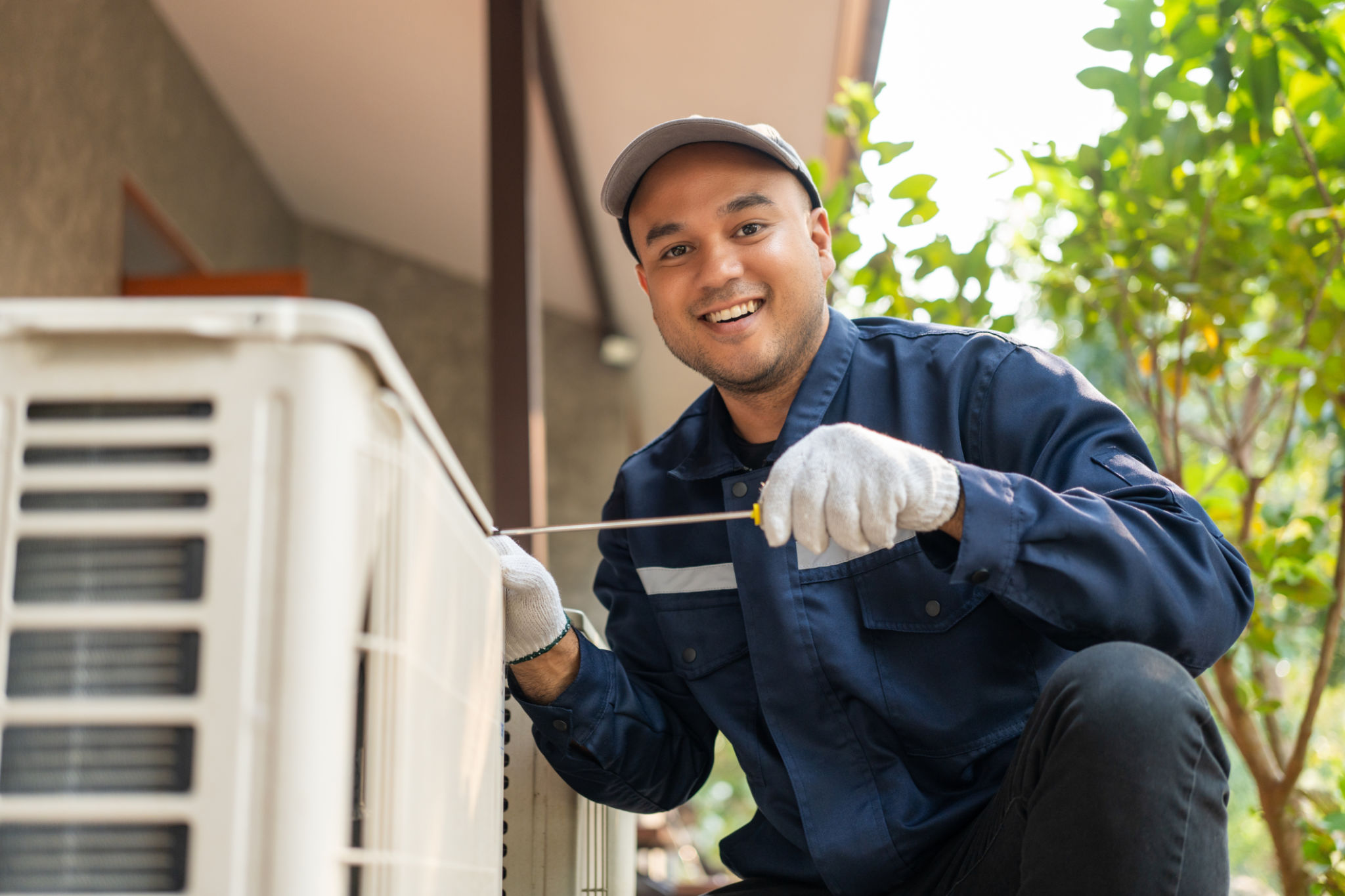DIY Tips for Maintaining Your HVAC System Between Professional Services
Understanding the Basics of HVAC Maintenance
Maintaining your HVAC system between professional services can significantly enhance its efficiency and lifespan. By dedicating a small amount of time each month, you can ensure that your system runs smoothly and effectively. This guide provides simple DIY tips to help you maintain your HVAC system, saving both energy and money.
Before diving into maintenance tasks, it's crucial to understand the basic components of your HVAC system. The main parts include the thermostat, furnace, evaporator coil, condenser unit, and the ductwork. Familiarizing yourself with these components can help you perform maintenance tasks more effectively.

Regularly Replace Air Filters
One of the most straightforward ways to maintain your HVAC system is by regularly replacing the air filters. Dirty or clogged filters can restrict airflow, causing the system to work harder and use more energy. To keep your system running efficiently, check your filters monthly and replace them every 1-3 months depending on usage and filter type.
Consider upgrading to high-efficiency particulate air (HEPA) filters if your system supports them. These filters can trap smaller particles, improving the air quality in your home. Always refer to the manufacturer's guidelines for compatible filter types.
Keep the Outdoor Unit Clean
The outdoor condenser unit is often exposed to the elements, making it susceptible to debris buildup. To keep it running efficiently, regularly inspect and clean the unit. Remove leaves, dirt, and other debris that may have accumulated around it. Ensure there's at least two feet of clearance around the unit for proper airflow.

Additionally, check the fins of the condenser unit. If they appear bent, you can straighten them using a fin comb available at most hardware stores. This simple task can significantly improve airflow and efficiency.
Inspect and Clean Ductwork
Ductwork plays a crucial role in distributing conditioned air throughout your home. If there are leaks or blockages, it can lead to inefficient heating or cooling. Periodically inspect accessible ducts for visible signs of wear or damage. Seal any leaks with duct tape or mastic sealant to improve efficiency.
Additionally, ensure that your registers and vents are not blocked by furniture or other objects. Keeping these areas clear allows for better airflow and more consistent room temperatures.

Maintain a Consistent Thermostat Setting
Your thermostat is the control center for your HVAC system. Maintaining a consistent temperature can reduce strain on the system and enhance its longevity. Consider investing in a programmable thermostat if you haven’t already. This allows you to set schedules that align with your daily routine, optimizing energy use without sacrificing comfort.
During summer, setting your thermostat to the highest comfortable temperature can reduce energy use. Conversely, during winter, setting it to the lowest comfortable temperature can yield similar benefits.
Check for Unusual Sounds
Unusual sounds from your HVAC system could indicate underlying problems. Listen for grinding, squealing, or banging noises while the system is operating. These sounds might signal issues such as loose components or motor problems. Addressing these promptly can prevent larger issues down the road.
If you're unsure about any sounds or feel uncomfortable performing certain maintenance tasks, don't hesitate to contact a professional HVAC technician for assistance.
Schedule Regular Professional Inspections
No matter how diligent you are with DIY maintenance, scheduling regular professional inspections is essential. A certified HVAC technician can identify potential issues before they become major problems and perform tasks that require specialized tools or expertise.

By combining these DIY tips with professional services, you can ensure that your HVAC system remains efficient and reliable throughout its lifespan. Taking proactive steps now can lead to significant savings on repairs and energy costs in the future.
